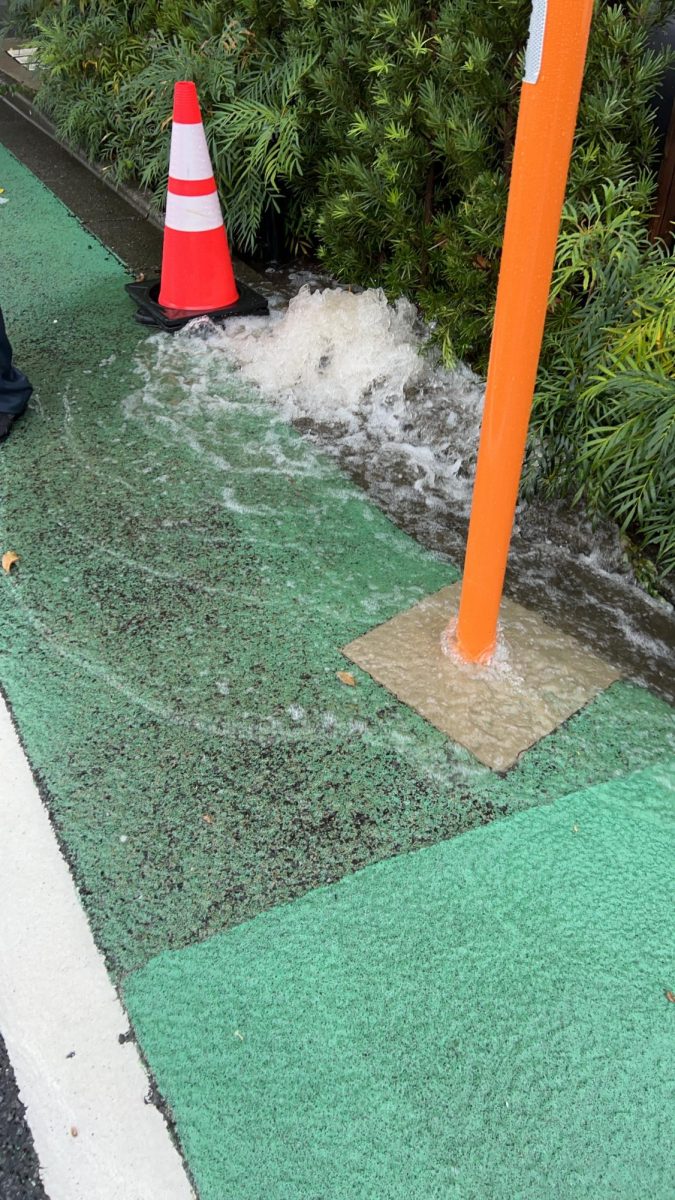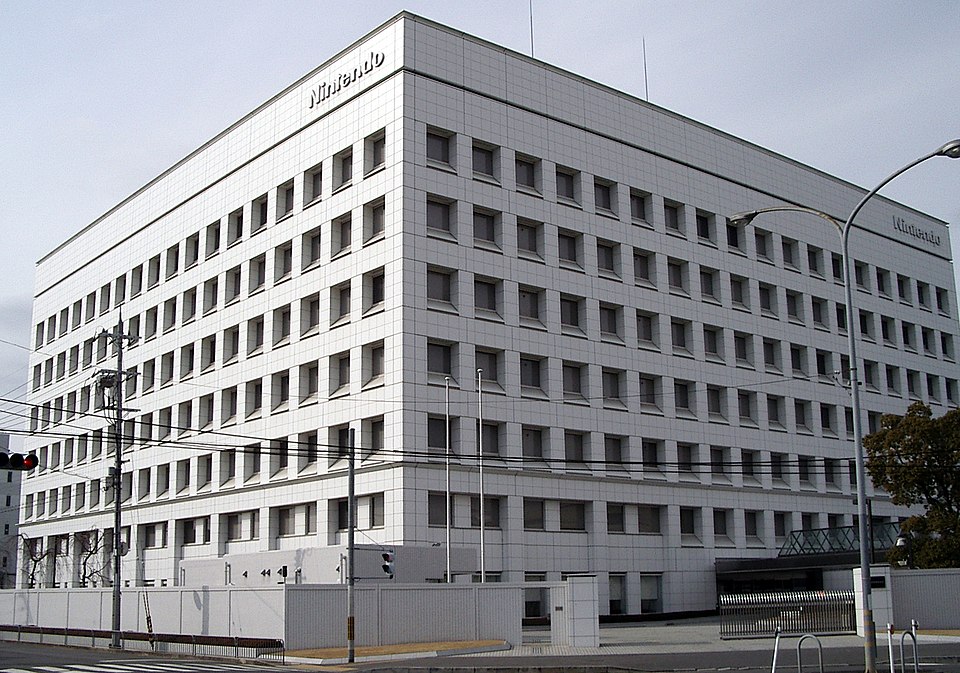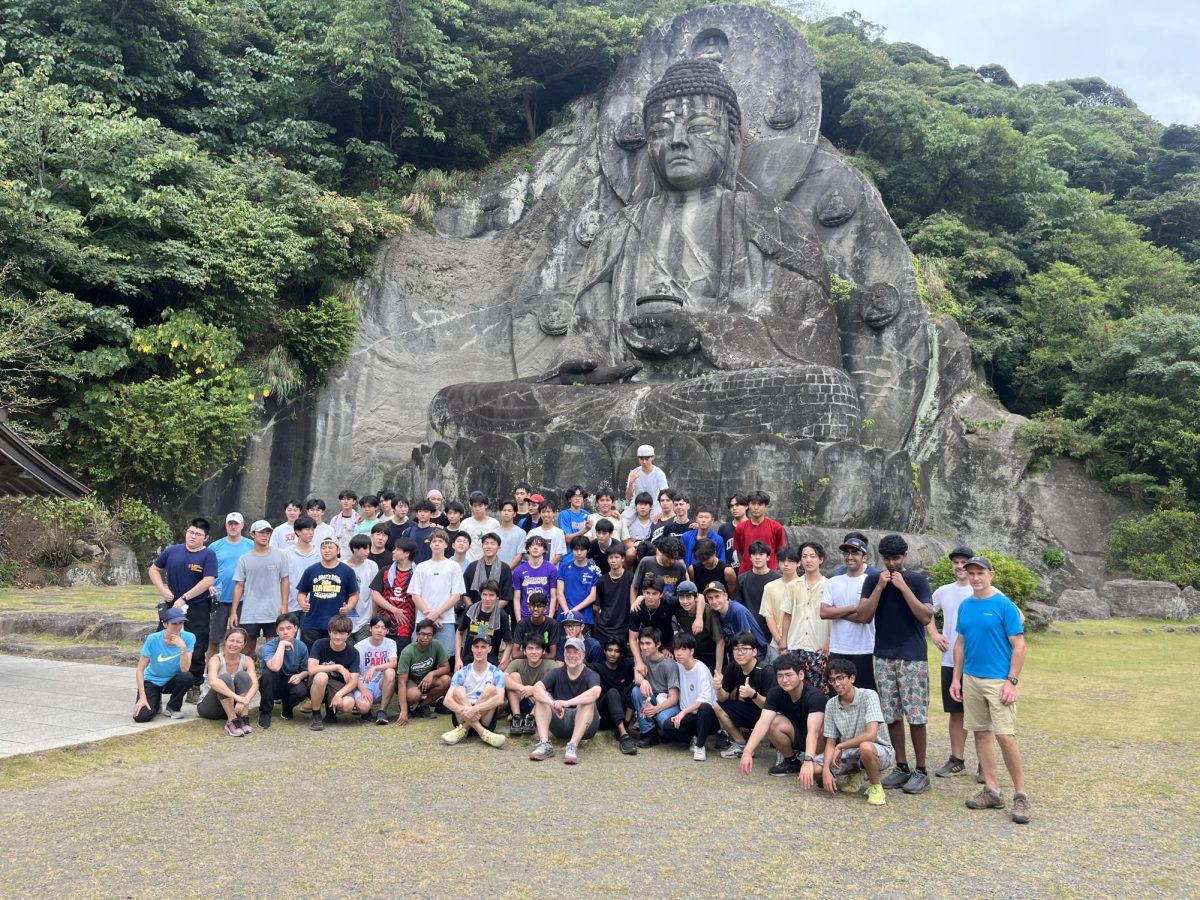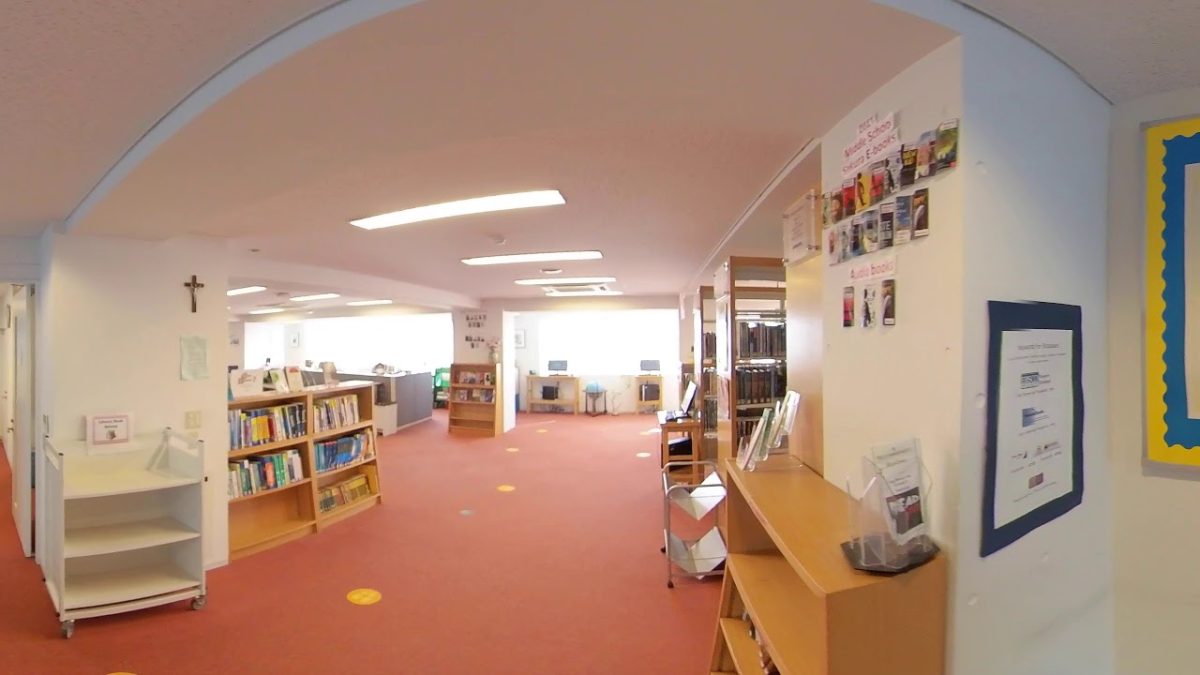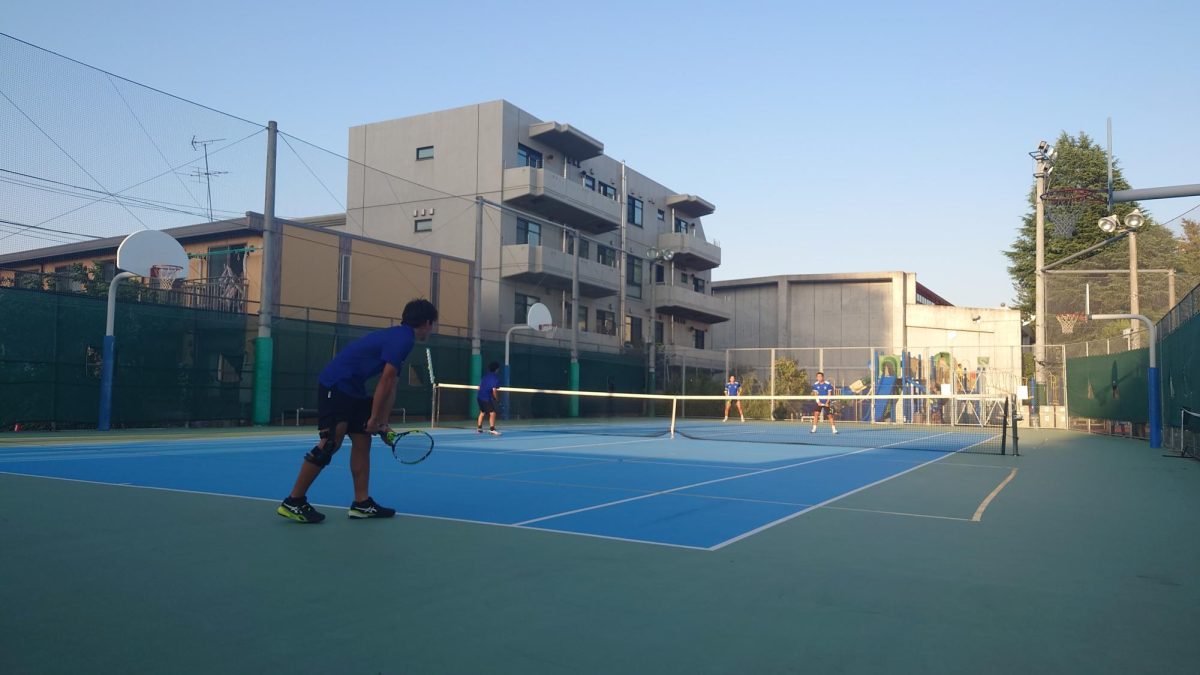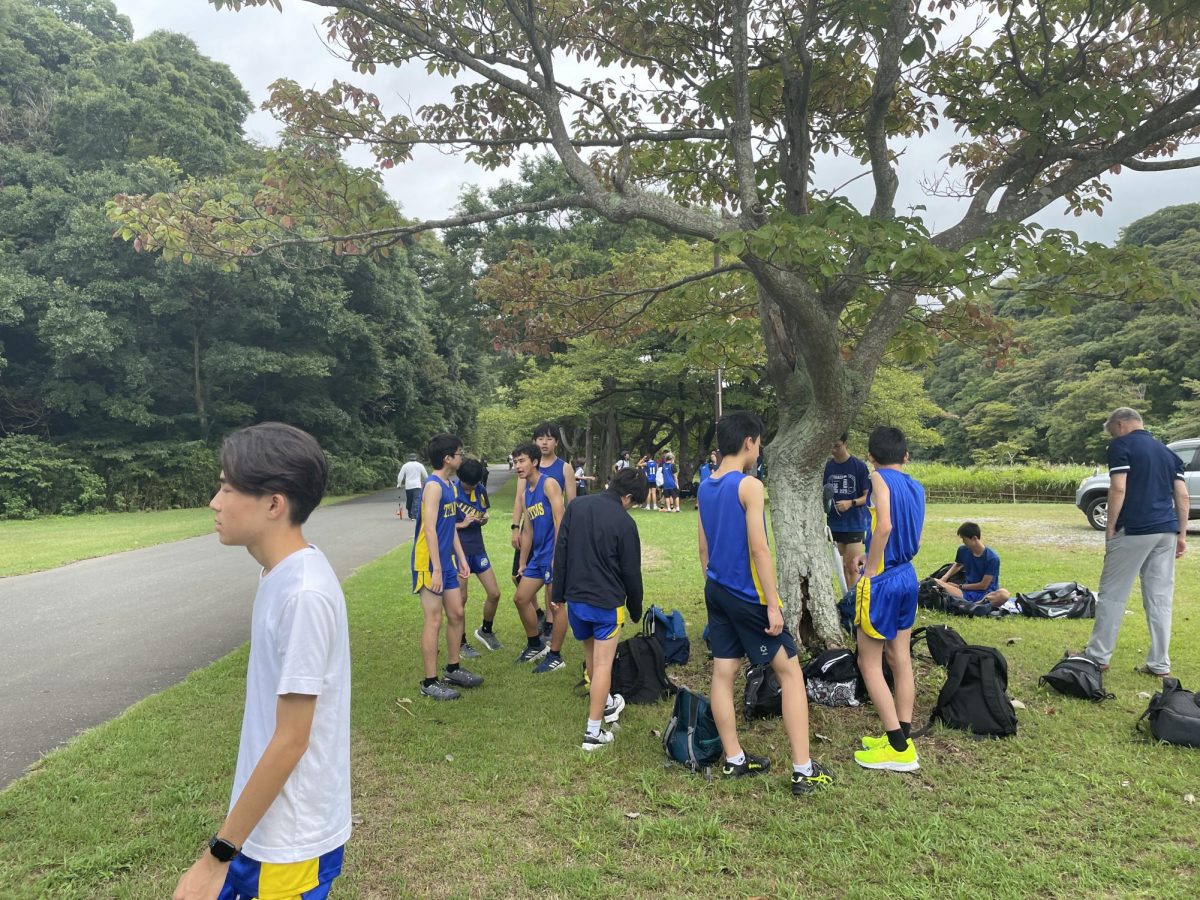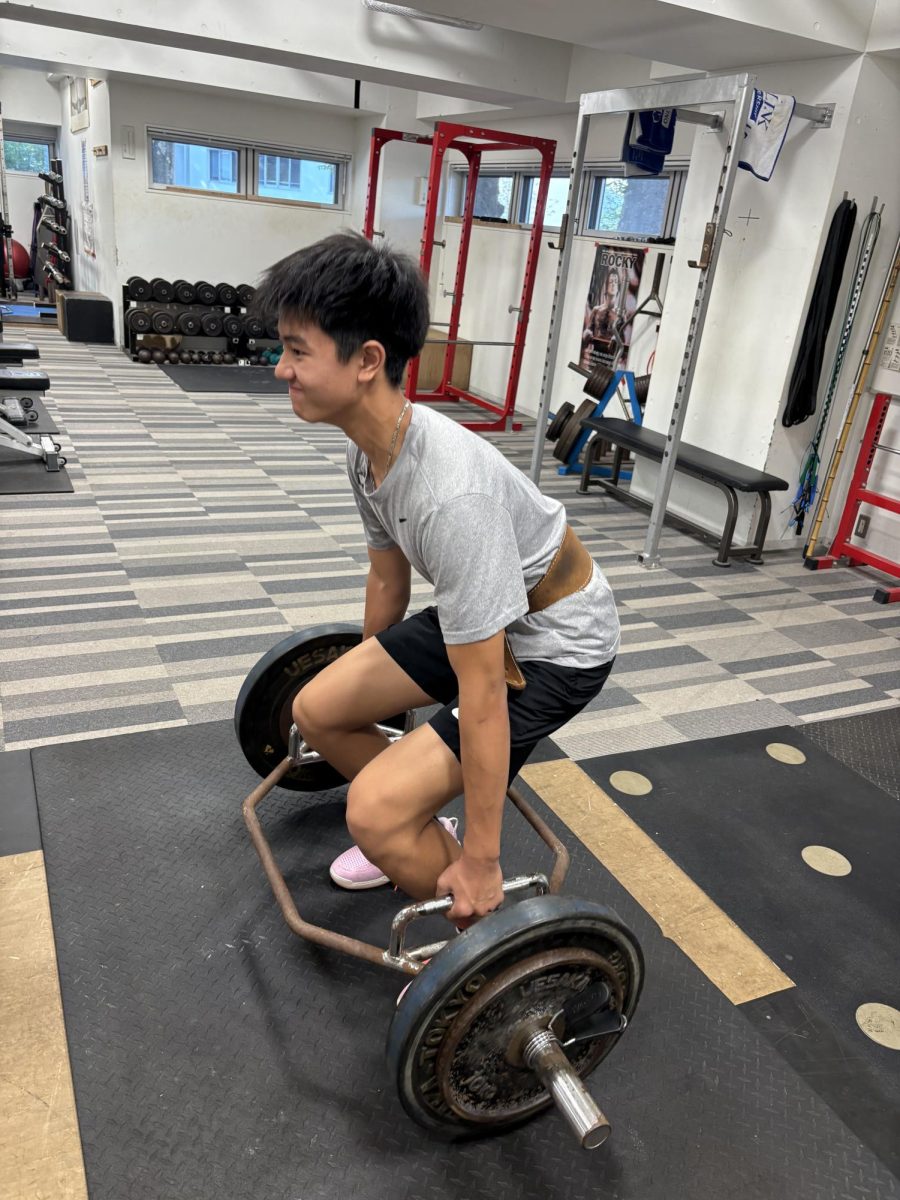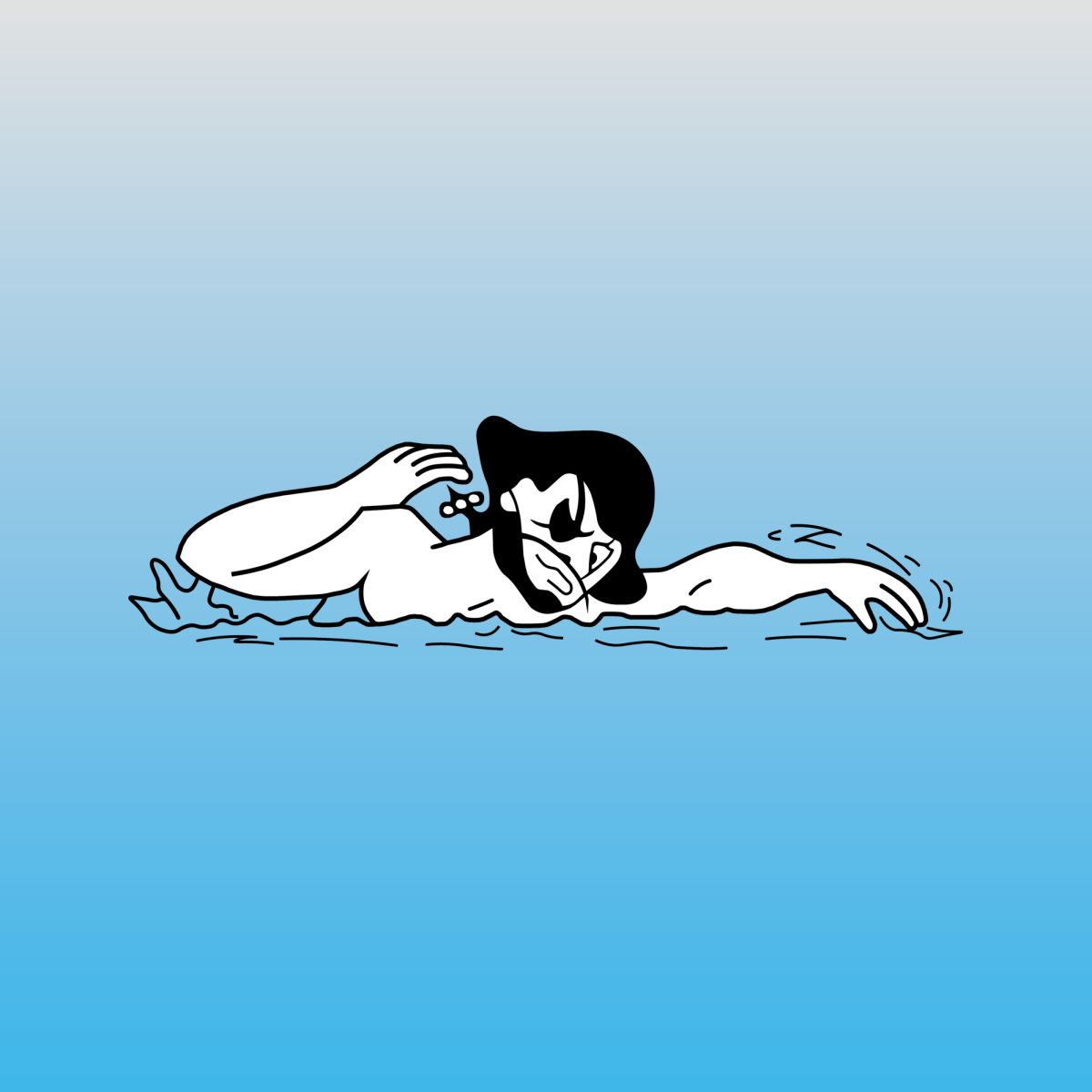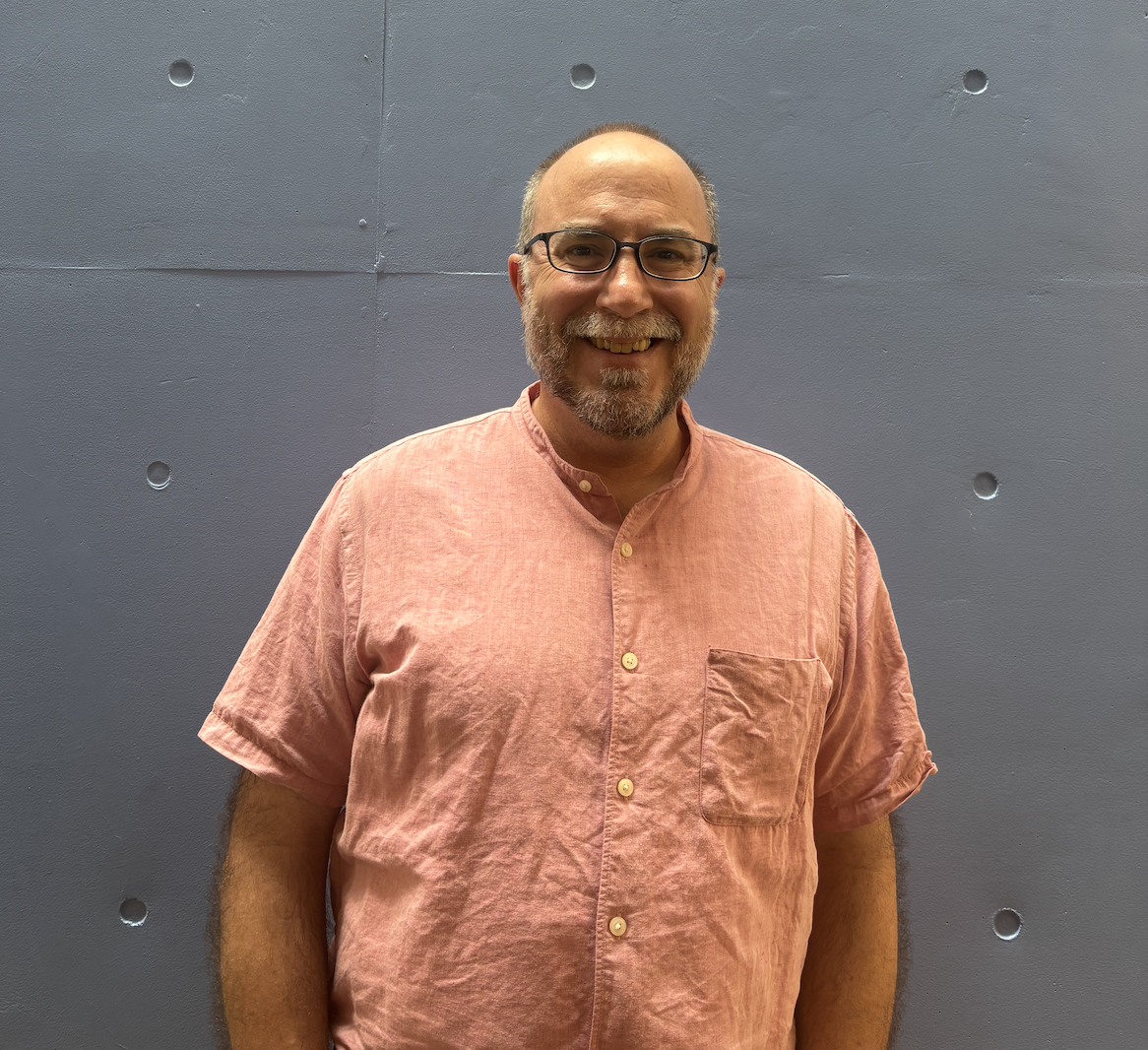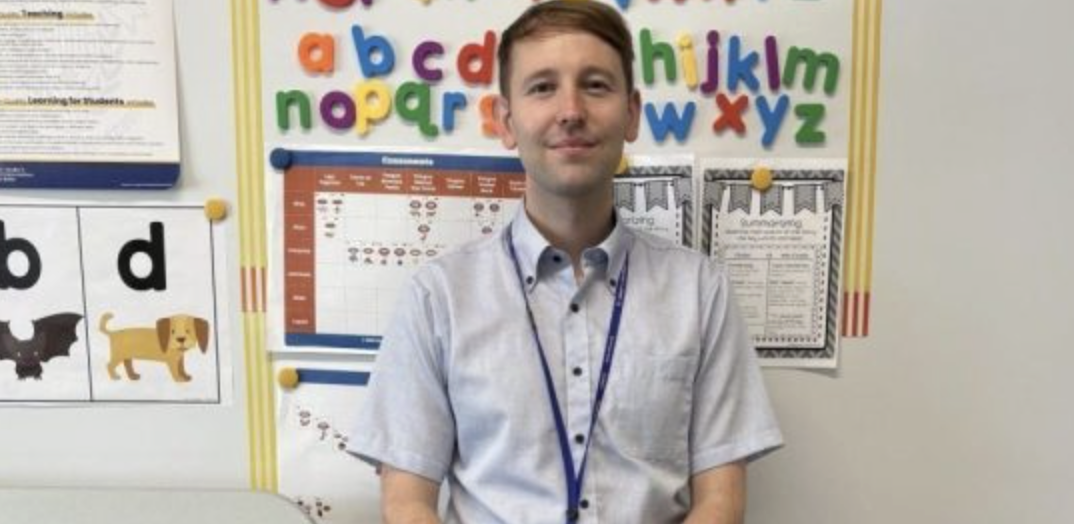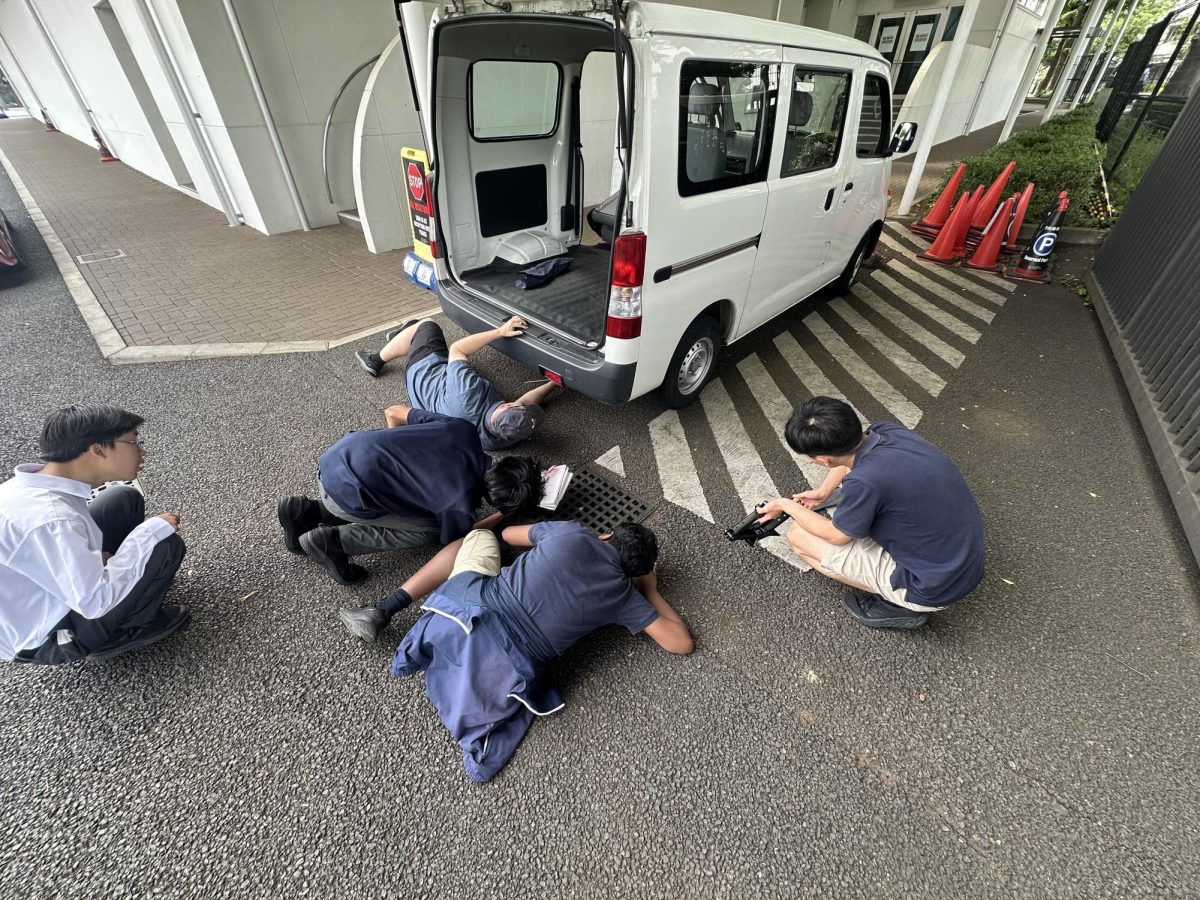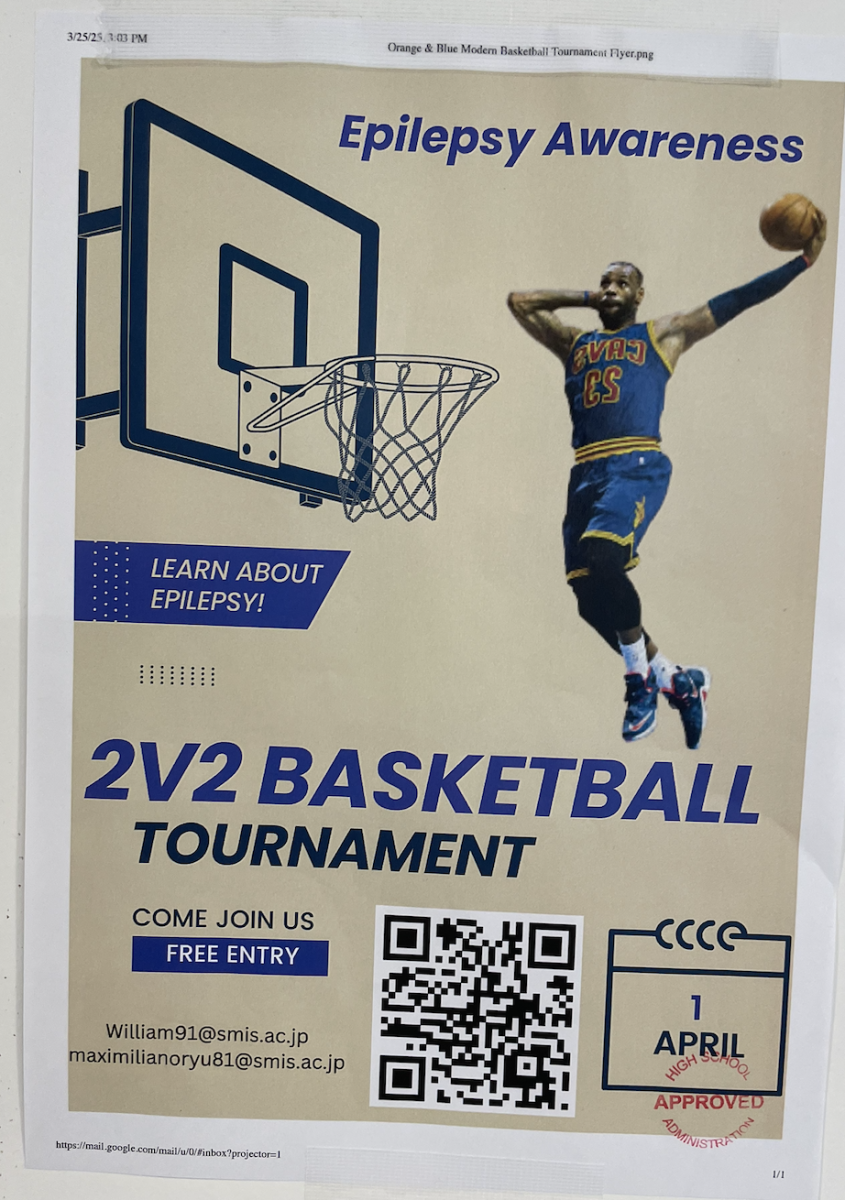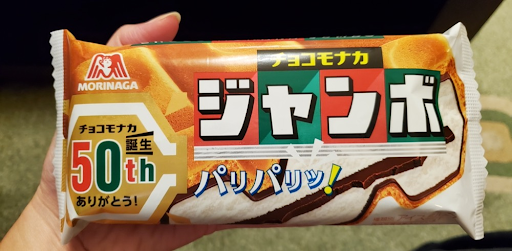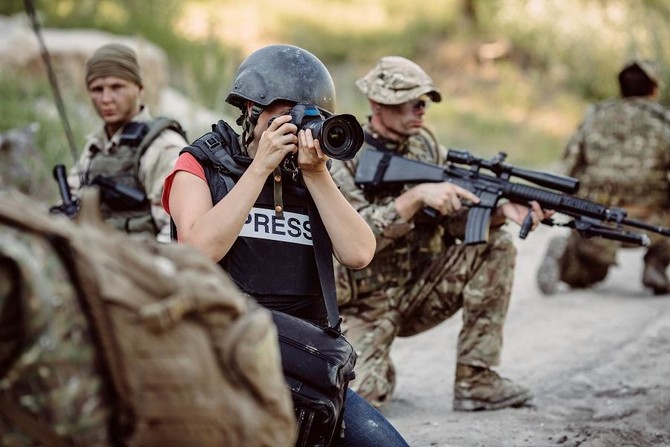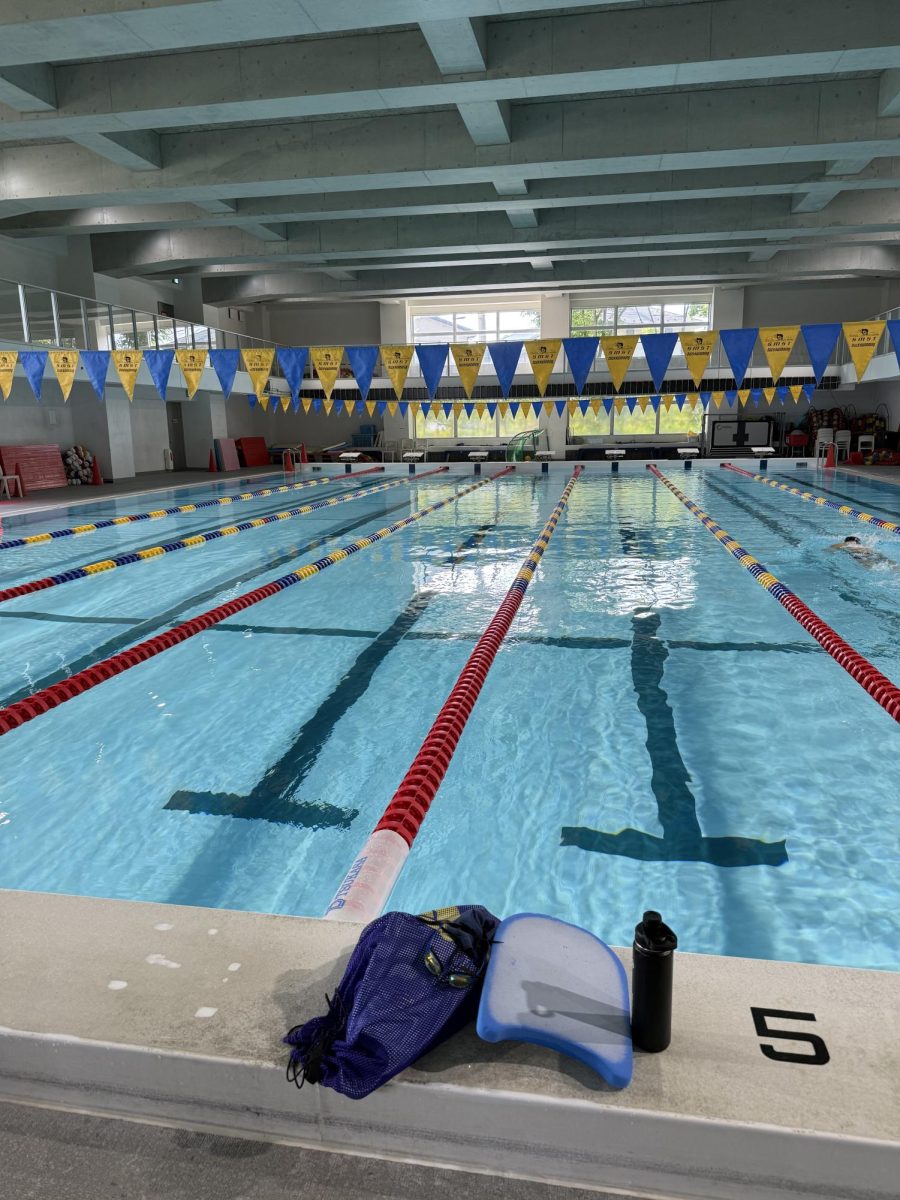At the March Age Group Championships, 15-year-old Nicolas Radzimski claimed the High Point Trophy for the 15–18 Boys after two gruelling days of racing. Parents applauded, coaches nodded with respect, and teammates yelled from the sidelines. However, most people only witnessed the surface of his success. The true story wasn’t about one swimmer’s success, but a team that helped carry him to the blocks and beyond.
When people watch swimming, they often consider it an individual sport. One swimmer. One lane. One race. However, at the SMST (Saint Mary’s Swim Team) Buccaneers, that could not be any further from the truth.
Here, teamwork is the foundation of success. Behind every race, every personal best, and every harsh practice is a team working together, supporting each other, and a culture that has been fostered over decades.
Swimming can be seen as time-consuming and mentally exhausting, which leads to many people quitting. Yet, the Bucs swimmers lift each other up no matter the circumstance. After a 2000 IM (Individual Medley) set, swimmers could be seen laughing and high-fiving each other, displaying the tight-knit, supportive community.
“Swimming is already a hard enough sport,” said Dave Moodie, the head coach of the Buccaneers for over 30 years. “The relationships the kids have with the other swimmers is what kind of keeps them going, everybody encourages each other.”
Coach Moodie has spent his time as the head coach building an environment centred around teamwork. “We want to keep the message really clear,” he said. “The goal is just to get better as a group and learn how to get better as a team; that I think is paramount.” This philosophy has been expressed for decades.
He recalls a story from 1994 when there was a rift between the senior swimmers of a relay team. “After encouragement from the other coach and I, they eventually worked it out amongst themselves…and then from there they just took off,” he said “I remember that like it was just yesterday. Those kinds of stories stick with you.” The relay ended up placing 10th at the Japan National Championships. Coach Moodie strongly emphasises his belief that success in swimming is much more than trophies, medals, and times.
Nicolas Radzimski, who has been on the Bucs for nearly a decade, knows the importance of a support system firsthand. “One or two years ago, I started to hit a lot of plateaus in my main races, so my motivation started declining,” he said. “But I had the team, my friends and the coaches beside me, and they really helped me change my mentality and push through. And since then, I’ve overcome those plateaus and have had significant success.”
As one of the team’s older and more experienced swimmers, he is one that the younger swimmers look up to. Radzimski recognises his role in the continuous cycle of support within the team. “I need to recreate what the older guys did for me when I was younger, and support the younger guys on the team right now,” he said. “I think that will continue the cycle because I would make an impact on the younger kids right now, and hopefully they would see it how I saw it and continue that cycle in the years to come. “
Victor Thomas, one of the team’s newest members, felt this environment immediately. “At first it was pretty hard and I couldn’t even finish a practice,” he said “After my first Saturday morning practice, the team and I went to go get lunch and I feel like they really included me as a member of the Buccaneers when I had this bonding moment with them.” The Buccaneer’s inclusivity not only helped him feel welcomed within the team but also at St. Mary’s as a whole. “Being part of the Bucs really helped me adjust myself to St. Mary’s easily,” he said.
The impact that this environment has doesn’t end at graduation. Ryan Furudera, a former SMST swimmer who has gone on to swim for Babson College at the Division III level, reflected on the value of his experiences at the Bucs. “[Coach Moodie] emphasised not just training hard but also training smart and developing as a person as well as a team. At SMST, you know everyone has your back, and it helps you recover and bounce back even stronger.”
“切磋琢磨 (sessa-takuma),” Coach Moodie added, mentioning a Japanese four-character idiom which emphasises the importance of friends encouraging and competing with each other to improve together.
Many people only see the competitions and the trophies, but they miss the early mornings, the exhausting practices, and the support that keeps each swimmer afloat. At SMST, swimmers want to see others succeed more than they want to see themselves succeed. SMST shows us that greatness is seldom achieved alone, and being part of a team can push you further than any personal best could ever.
Because in the end, no one really swims alone.



